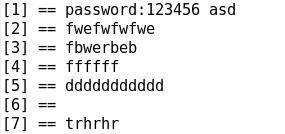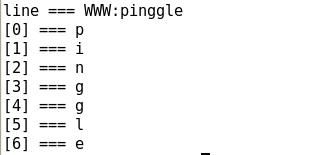- 关于系统无法找到 arm-linux-gcc 命令,这表明你的环境中尚未安装 ARM 交叉编译工具链。以下是详细的解决方案:(DIY机器人工房)
DIY机器人工房
软件问题解决方法大全arm开发linux运维交叉编译嵌入式
1.错误原因分析错误信息:无法将“arm-linux-gcc”项识别为cmdlet/函数/程序这说明Windows或Cygwin环境中没有安装ARM交叉编译工具,或者工具路径未添加到系统PATH中。当前环境:你之前使用的是Cygwin环境下的x86_64架构GCC(用于编译x86程序),而arm-linux-gcc是专门用于编译ARM架构程序的工具链,需要额外安装。2.解决方案:安装ARM交叉编译
- linux操作系统----nginx平滑升级
Insist753
linuxnginx运维
目录1Nginx平滑升级原理2Nginx信号2.1主进程支持的信号2.2工作进程支持的信号3平滑升级实战3.1Nginx添加新模块1Nginx平滑升级原理在不停掉老进程的情况下,启动新进程。老进程负责处理仍然没有处理完的请求,但不再接受处理请求。新进程接受新请求。老进程处理完所有请求,关闭所有连接后,停止。2Nginx信号2.1主进程支持的信号TERM,INT:立刻退出;QUIT:等待工作进程结束
- 【AI大模型面试八股文】大模型训练中如何应对灾难性遗忘问题?
一叶千舟
AI大模型应用【八股文】人工智能深度学习
目录✅面试回答模板:一、什么是灾难性遗忘?举个通俗的例子:二、灾难性遗忘是怎么发生的?常见触发情境:三、我们为什么要关注灾难性遗忘?四、主流解决方案汇总✅1.固定部分参数(FeatureExtraction)✅2.正则化策略(Regularization)✅3.回放机制(Rehearsal/Replay)✅4.参数隔离(ParameterIsolation)✅5.使用提示学习(PromptLear
- java毕业设计-基于java的电商网购平台,网购商城管理系统(源码+LW+部署文档+全bao+远程调试+代码讲解等)
程序猿八哥
springbootvuejavejava课程设计开发语言
博主介绍:✌️码农一枚,专注于大学生项目实战开发、讲解和毕业文撰写修改等。全栈领域优质创作者,博客之星、掘金/华为云/阿里云/InfoQ等平台优质作者、专注于Java、小程序技术领域和毕业项目实战✌️技术范围::小程序、SpringBoot、SSM、JSP、Vue、PHP、Java、python、爬虫、数据可视化、大数据、物联网、机器学习等设计与开发。主要内容:免费功能设计,开题报告、任务书、全b
- 怎么限制某些IP访问服务器?
莱卡云(Lcayun)
tcp/ip服务器网络协议云计算linux
您可以通过多种方式限制特定IP地址访问您的服务器,以下是几种常见的方法:1.使用防火墙限制IP访问Linux系统(iptables)#阻止单个IPiptables-AINPUT-s192.168.1.100-jDROP#阻止IP段iptables-AINPUT-s192.168.1.0/24-jDROP#允许特定IP访问SSH(22端口)iptables-AINPUT-s203.0.113.5-p
- Charles 中文版怎么用?接口抓包、慢请求分析、App 调试一文掌握
2501_91591841
httpudphttpswebsocket网络安全网络协议tcp/ip
随着应用开发的复杂性增加,开发者在调试和优化网络请求时需要依赖高效的工具来确保系统稳定性和用户体验。特别是在Web开发和移动应用开发中,调试HTTP/HTTPS请求和API接口变得尤为重要。Charles抓包工具因其强大的抓包、调试功能以及性能分析能力,成为了开发者日常工作中不可或缺的工具。本文将介绍如何使用Charles中文版抓包工具提升API调试效率、优化应用性能和加速开发流程。1.Charl
- 服务器如何配置防火墙规则开放/关闭端口?
莱卡云(Lcayun)
服务器云计算linux安全
配置服务器防火墙规则(开放/关闭端口)是服务器安全管理的基础操作,不同操作系统和防火墙工具的配置方式有所不同。以下是主流系统的详细操作指南:一、Linux系统(iptables/firewalld/UFW)1.iptables(传统方式)#查看当前规则sudoiptables-L-n#开放端口(如80/TCP)sudoiptables-AINPUT-ptcp--dport80-jACCEPT#关闭
- ubuntu2404命令备忘录
Eva215665
gitcode
ubuntu基础概念什么是BashShellBashShell(全称Bourne-AgainSHell)是Linux和macOS等类Unix系统中最常用的命令行解释器,也是Ubuntu的默认Shell。它既是用户与操作系统内核交互的“翻译官”,也是一种强大的脚本编程语言。用户输入文本命令(如ls、cd)→Bash解析并执行→调用系统内核功能(如文件操作、进程管理)→返回结果到终端。
- Docker 网络中 `iptables` 与 Linux Namespace 行为详解:原理、链路与实战排查路径
观熵
Dockerdocker网络linux
Docker网络中iptables与LinuxNamespace行为详解:原理、链路与实战排查路径关键词:Docker网络、iptables、LinuxNamespace、容器隔离、NAT转发、网络命名空间、网络排查、veth、Bridge、POSTROUTING、FORWARD链、容器网络调试摘要:在Docker网络体系中,iptables与LinuxNamespace是实现容器间隔离、地址转换
- 【ubuntu】如何构建自己的ubuntu内核
1.准备环境sudoaptupdatesudoaptinstallbuild-essentialfakerootdpkg-devkernel-packagelibncurses-devbisonflexlibssl-devlibelf-dev2.下载内核源码确认源码包,下载源码包。dpkg-S/boot/vmlinuz-$(uname-r)linux-image-5.15.0-46-generic
- Linux安装Python失败常见缺失依赖项
xcosy
Pythonpython
1._ctypes模块构建失败buildcorrectlybutfinishedwiththismessage:Failedtobuildthesemodules:_ctypes解决AreyouusingUbuntuorotherLinuxdistribution?Thisproblemisbecauseyoudidn’tinstallthedependencypackage.Youmayfirs
- FFmpeg开发笔记(四十四)毕业设计可做的几个拉满颜值的音视频APP
gegey
ffmpeg笔记音视频
合集-FFmpeg开发实战(53)1.FFmpeg开发笔记(一)搭建Linux系统的开发环境2023-04-162.FFmpeg开发笔记(二)搭建Windows系统的开发环境2023-04-293.FFmpeg开发笔记(三)FFmpeg的可执行程序介绍03-094.FFmpeg开发笔记(四)FFmpeg的动态链接库介绍03-105.FFmpeg开发笔记(五)更新MSYS的密钥环03-166.FFm
- Linux多线程—生产者消费者模型
生产者消费者模型用于解决生产者和消费者之间的同步问题。通过创建多个线程作为生产者和消费者,生产者消费者模型利用线程间的同步机制(如互斥锁、条件变量、信号量等)来实现生产者和消费者之间的协作和数据共享。本篇采用信号量+BlockQueue来实现生产者消费者模型。本文用到的一些接口(线程创建、线程等待...)请点击这个链接查看:多线程编程——Linux操作系统-CSDN博客目录文章目录一、生产者消费者
- Linux多线程(十五)之【封装原生线程】
好名字更能让你们记住我
linux运维服务器jvmcentosc++ubuntu
文章目录封装原生线程封装原生线程Thread.hpp#pragmaonce#include#include#include#include#includeusingnamespacestd;typedefvoid(*callback_t)();staticintnum=1;classThread{public:staticvoid*Routine(void*args){Thread*t=stati
- Python如何统治AI世界?一文读懂它的优势与挑战
AI与编程之窗
人工智能python人工智能TensorFlowPyTorchScikit-learnKerasNumPy
一、Python语言介绍1.1Python语言概述Python是一种由GuidovanRossum于1991年首次发布的高级编程语言。其设计理念强调代码的可读性和简洁性,使其成为了许多开发者的首选语言。Python的语法简洁直观,采用了缩进来定义代码块,这与其他使用花括号或关键词的编程语言不同。Python支持多种编程范式,包括面向对象编程、过程化编程和函数式编程,这使得它在各种应用场景中都表现出
- Linux 宝塔mysql莫名其妙数据库不见了恢复数据库
起因:宝塔安装的mysql线上运行突然表包括库都不见了,想办法恢复数据库登陆mysqlcd/www/server/mysql/binmysql-uroot-p查看binlog日志是否打开showvariableslike'log_%';log_bin如果为ON则为开启状态,如果开启了才可以进行下一步操作查看下binlog日志列表binlog日志文件目录在/www/server/data目录下sho
- 鸿蒙设备开发OpenHarmony源码分析之分布式软总线:authmanager/auth_conn.c
你我皆是牛马星人
鸿蒙开发OpenHarmonyHarmonyOSharmonyos分布式c语言openHarmony鸿蒙开发软总线源码分析
往期推文全新看点(文中附带最新·鸿蒙全栈学习笔记)鸿蒙(HarmonyOS)北向开发知识点记录~鸿蒙(OpenHarmony)南向开发保姆级知识点汇总~鸿蒙应用开发与鸿蒙系统开发哪个更有前景?嵌入式开发适不适合做鸿蒙南向开发?看完这篇你就了解了~对于大前端开发来说,转鸿蒙开发究竟是福还是祸?鸿蒙岗位需求突增!移动端、PC端、IoT到底该怎么选?记录一场鸿蒙开发岗位面试经历~持续更新中……一、概述本
- mysql启动报错:Can‘t connect to local MySQL server through socket
五月天的尾巴
数据库mysql报错
文章目录一、报错内容二、解决方法一、报错内容在linux上启动mysql时报错[root@localhostbin]#./mysql-uroot-pEnterpassword:ERROR2002(HY000):Can'tconnecttolocalMySQLserverthroughsocket'/tmp/mysql.sock'(2)执行以上命令后报错,并且也没有找到/tmp/mysql.sock
- 爬虫系统异常监控并邮件通知源码
q56731523
爬虫golang开发语言python
前面两篇讲了有关爬虫系统的搭建以及爬虫中需要的代理ip池的搭建的全过程,接下来我将写一个爬虫系统以及代理ip池异常监控的程序,主要功能就是监控是否发生异常,及时通过邮件提醒管理员排查故障,这样整体的一套流程就全部清晰了,能够完美适配任何项目。在Linux系统上监控爬虫运行状态并实现异常邮件通知,可以通过以下方案实现:一、监控爬虫运行状态的核心方法1、进程存活监控#检查爬虫进程是否存在pgrep-f
- Python实例题:基于 Python 的简单文件管理器
狐凄
实例python开发语言
目录Python实例题题目要求:解题思路:代码实现:Python实例题题目基于Python的简单文件管理器要求:使用Python构建一个简单的文件管理器,支持以下功能:浏览文件和文件夹创建、删除和重命名文件/文件夹复制、移动和压缩文件/文件夹搜索文件和文件夹查看文件属性和预览文本文件使用tkinter构建图形用户界面。支持多平台(Windows、Linux、macOS)。解题思路:使用tkinte
- Linux内核套接字诊断框架:sock_diag.c深度解析
109702008
编程#C语言网络linux人工智能网络
在内核网络子系统中,sock_diag.c是支撑ss、netstat等工具的核心模块,它通过统一框架实现了跨协议族的套接字诊断功能。本文将深入剖析其设计思想与实现细节。一、框架概述:解耦协议与诊断sock_diag的核心是协议族处理程序注册机制。不同协议族(如AF_INET、AF_INET6)通过注册sock_diag_handler结构体实现定制化诊断:structsock_diag_handl
- Chatbox使用指南
想知道哇
大语言模型人工智能语言模型
Chatbox使用与API配置指南目录Chatbox简介安装与设置基本使用API配置使用进阶功能常见问题与解决方案最佳实践与技巧1.Chatbox简介Chatbox是一款开源的ChatGPT/API桌面应用程序,支持Windows、Mac和Linux。它允许用户通过友好的界面与各种大型语言模型进行交互,包括:OpenAI的ChatGPT、GPT-4等模型Anthropic的Claude系列模型Go
- Linux
Linux基础Linux基础防火墙命令iptables防火墙firewalld防火墙介绍selinux常用命令集锦文件目录命令查看文件及目录文件浏览文件操作文档编辑管道|grep命令磁盘命令备份压缩文件权限网络配置rpm包管理demoLinux基础防火墙命令注意:在centos6和centos7中,命令上的区别1.防火墙:6是iptables,7是firewalld2.启动服务的命令:6是serv
- 【Linux】电脑安装 Ubuntu 系统
如何安装Linux(Ubuntu)系统文章目录前言一、Ubuntu桌面镜像二、安装步骤1.下载iso镜像2.基于balenaEtcher写入镜像文件3.U盘启动安装总结前言多数情况下,我们通过虚拟机,如Vmware安装linux系统,但有时候为了更好的分配电脑的CPU或GPU性能,我们需要将电脑直接刷成linux系统。本篇介绍如何安装Ubuntu系统。一、Ubuntu桌面镜像Linux系统多数情况
- Coablt strike官方教程中文版
banacyo14206
java网络运维
安装和设置系统要求CobaltStrike的最低系统要求2GHz+以上的cpu2GBRAM500MB+可用空间在Amazon的EC2上,至少使用较高核数的CPU(c1.medium,1.7GB)实例主机。支持的操作系统以下系统支持CobaltStrikeTeamServer:KaliLinux2018.4-AMD64UbuntuLinux16.04,18.04-x86_64CobaltStrike
- 学习:JAVAEE_3 TomCat/HTTP协议/Servlet/三层架构综合案例和开发模式
明礼的代码管理中心
JAVAEE学习java-eetomcat
TomCatTomcat服务器是一个免费的开放源代码的Web应用服务器。下载地址:ApacheTomcat®-Welcome!tar.gz文件是linux操作系统下的安装版本exe文件是window操作系统下的安装版本zip文件是window操作系统下压缩版本/usr/local/apache-tomcat-8.5.78存放位置环境变量exportAPACHE_TOMCAT=/usr/local/
- 【Linux】宏内核与微内核:操作系统内核设计的两大派系
CodeWithMe
linuxlinuxarm开发运维
宏内核与微内核:操作系统内核设计的两大派系在操作系统(OS)的世界里,内核(Kernel)是最核心的部分,它负责管理硬件资源、进程调度、内存管理、设备驱动等关键任务。不同的操作系统内核设计理念主要分为两大类:宏内核(MonolithicKernel)和微内核(Microkernel)。这两者在架构设计、性能、安全性和扩展性上各有优劣,理解它们对于深入掌握操作系统设计至关重要。1.什么是内核?简单来
- 【Note】《深入理解Linux内核》Chapter 13 :深入理解 Linux 内核中的 I/O 架构与设备驱动
CodeWithMe
读书笔记linuxlinux架构运维
《深入理解Linux内核》Chapter13:深入理解Linux内核中的I/O架构与设备驱动关键词:I/O子系统、字符设备、块设备、VFS、设备驱动、file_operations、设备号、cdev、gendisk、驱动模型、模块加载、udev一、LinuxI/O架构总览1.1为什么需要抽象化的I/O架构?设备多样性(硬盘、串口、键盘、GPU);设备访问方式差异极大;用户空间程序期望统一的访问接口
- AI大模型定义与应用概述
水云桐程序员
人工智能ai大模型
AI大模型,也成为基础模型或大规模预训练模型,指的是在海量数据上通过深度学习技术进行预训练的超大型人工智能模型。常见类型大型语言模型:这是目前最主流和成熟的大模型类型。擅长文本生成、文本理解、机器翻译、对话系统、代码生成与解释等。代表案例:GPT系列、通义千问、文心一言、KimiChat等。多模态大模型:擅长同时处理和生成多种模态的信息,如文生图、图生文、图文问答、视频理解、音频生成等。代表案例:
- Redis重大版本整理(Redis2.6-Redis7.0)
m0_74824025
面试学习路线阿里巴巴redisjava数据库
Redis借鉴了Linux操做系统对于版本号的命名规则:node版本号第二位若是是奇数,则为非稳定版本(例如2.7、2.9、3.1),若是是偶数,则为稳定版本(例如2.6、2.8、3.0、3.2)。当前奇数版本就是下一个稳定版本的开发版本,例如2.9版本是3.0版本的开发版本,因此咱们在生产环境一般选取偶数版本的Redis。下面是重大版本新功能的归纳:Redis7.0新增Function自定义函数
- 桌面上有多个球在同时运动,怎么实现球之间不交叉,即碰撞?
换个号韩国红果果
html小球碰撞
稍微想了一下,然后解决了很多bug,最后终于把它实现了。其实原理很简单。在每改变一个小球的x y坐标后,遍历整个在dom树中的其他小球,看一下它们与当前小球的距离是否小于球半径的两倍?若小于说明下一次绘制该小球(设为a)前要把他的方向变为原来相反方向(与a要碰撞的小球设为b),即假如当前小球的距离小于球半径的两倍的话,马上改变当前小球方向。那么下一次绘制也是先绘制b,再绘制a,由于a的方向已经改变
- 《高性能HTML5》读后整理的Web性能优化内容
白糖_
html5
读后感
先说说《高性能HTML5》这本书的读后感吧,个人觉得这本书前两章跟书的标题完全搭不上关系,或者说只能算是讲解了“高性能”这三个字,HTML5完全不见踪影。个人觉得作者应该首先把HTML5的大菜拿出来讲一讲,再去分析性能优化的内容,这样才会有吸引力。因为只是在线试读,没有机会看后面的内容,所以不胡乱评价了。
- [JShop]Spring MVC的RequestContextHolder使用误区
dinguangx
jeeshop商城系统jshop电商系统
在spring mvc中,为了随时都能取到当前请求的request对象,可以通过RequestContextHolder的静态方法getRequestAttributes()获取Request相关的变量,如request, response等。 在jshop中,对RequestContextHolder的
- 算法之时间复杂度
周凡杨
java算法时间复杂度效率
在
计算机科学 中,
算法 的时间复杂度是一个
函数 ,它定量描述了该算法的运行时间。这是一个关于代表算法输入值的
字符串 的长度的函数。时间复杂度常用
大O符号 表述,不包括这个函数的低阶项和首项系数。使用这种方式时,时间复杂度可被称为是
渐近 的,它考察当输入值大小趋近无穷时的情况。
这样用大写O()来体现算法时间复杂度的记法,
- Java事务处理
g21121
java
一、什么是Java事务 通常的观念认为,事务仅与数据库相关。 事务必须服从ISO/IEC所制定的ACID原则。ACID是原子性(atomicity)、一致性(consistency)、隔离性(isolation)和持久性(durability)的缩写。事务的原子性表示事务执行过程中的任何失败都将导致事务所做的任何修改失效。一致性表示当事务执行失败时,所有被该事务影响的数据都应该恢复到事务执行前的状
- Linux awk命令详解
510888780
linux
一. AWK 说明
awk是一种编程语言,用于在linux/unix下对文本和数据进行处理。数据可以来自标准输入、一个或多个文件,或其它命令的输出。它支持用户自定义函数和动态正则表达式等先进功能,是linux/unix下的一个强大编程工具。它在命令行中使用,但更多是作为脚本来使用。
awk的处理文本和数据的方式:它逐行扫描文件,从第一行到
- android permission
布衣凌宇
Permission
<uses-permission android:name="android.permission.ACCESS_CHECKIN_PROPERTIES" ></uses-permission>允许读写访问"properties"表在checkin数据库中,改值可以修改上传
<uses-permission android:na
- Oracle和谷歌Java Android官司将推迟
aijuans
javaoracle
北京时间 10 月 7 日,据国外媒体报道,Oracle 和谷歌之间一场等待已久的官司可能会推迟至 10 月 17 日以后进行,这场官司的内容是 Android 操作系统所谓的 Java 专利权之争。本案法官 William Alsup 称根据专利权专家 Florian Mueller 的预测,谷歌 Oracle 案很可能会被推迟。 该案中的第二波辩护被安排在 10 月 17 日出庭,从目前看来
- linux shell 常用命令
antlove
linuxshellcommand
grep [options] [regex] [files]
/var/root # grep -n "o" *
hello.c:1:/* This C source can be compiled with:
- Java解析XML配置数据库连接(DOM技术连接 SAX技术连接)
百合不是茶
sax技术Java解析xml文档dom技术XML配置数据库连接
XML配置数据库文件的连接其实是个很简单的问题,为什么到现在才写出来主要是昨天在网上看了别人写的,然后一直陷入其中,最后发现不能自拔 所以今天决定自己完成 ,,,,现将代码与思路贴出来供大家一起学习
XML配置数据库的连接主要技术点的博客;
JDBC编程 : JDBC连接数据库
DOM解析XML: DOM解析XML文件
SA
- underscore.js 学习(二)
bijian1013
JavaScriptunderscore
Array Functions 所有数组函数对参数对象一样适用。1.first _.first(array, [n]) 别名: head, take 返回array的第一个元素,设置了参数n,就
- plSql介绍
bijian1013
oracle数据库plsql
/*
* PL/SQL 程序设计学习笔记
* 学习plSql介绍.pdf
* 时间:2010-10-05
*/
--创建DEPT表
create table DEPT
(
DEPTNO NUMBER(10),
DNAME NVARCHAR2(255),
LOC NVARCHAR2(255)
)
delete dept;
select
- 【Nginx一】Nginx安装与总体介绍
bit1129
nginx
启动、停止、重新加载Nginx
nginx 启动Nginx服务器,不需要任何参数u
nginx -s stop 快速(强制)关系Nginx服务器
nginx -s quit 优雅的关闭Nginx服务器
nginx -s reload 重新加载Nginx服务器的配置文件
nginx -s reopen 重新打开Nginx日志文件
- spring mvc开发中浏览器兼容的奇怪问题
bitray
jqueryAjaxspringMVC浏览器上传文件
最近个人开发一个小的OA项目,属于复习阶段.使用的技术主要是spring mvc作为前端框架,mybatis作为数据库持久化技术.前台使用jquery和一些jquery的插件.
在开发到中间阶段时候发现自己好像忽略了一个小问题,整个项目一直在firefox下测试,没有在IE下测试,不确定是否会出现兼容问题.由于jquer
- Lua的io库函数列表
ronin47
lua io
1、io表调用方式:使用io表,io.open将返回指定文件的描述,并且所有的操作将围绕这个文件描述
io表同样提供三种预定义的文件描述io.stdin,io.stdout,io.stderr
2、文件句柄直接调用方式,即使用file:XXX()函数方式进行操作,其中file为io.open()返回的文件句柄
多数I/O函数调用失败时返回nil加错误信息,有些函数成功时返回nil
- java-26-左旋转字符串
bylijinnan
java
public class LeftRotateString {
/**
* Q 26 左旋转字符串
* 题目:定义字符串的左旋转操作:把字符串前面的若干个字符移动到字符串的尾部。
* 如把字符串abcdef左旋转2位得到字符串cdefab。
* 请实现字符串左旋转的函数。要求时间对长度为n的字符串操作的复杂度为O(n),辅助内存为O(1)。
*/
pu
- 《vi中的替换艺术》-linux命令五分钟系列之十一
cfyme
linux命令
vi方面的内容不知道分类到哪里好,就放到《Linux命令五分钟系列》里吧!
今天编程,关于栈的一个小例子,其间我需要把”S.”替换为”S->”(替换不包括双引号)。
其实这个不难,不过我觉得应该总结一下vi里的替换技术了,以备以后查阅。
1
所有替换方案都要在冒号“:”状态下书写。
2
如果想将abc替换为xyz,那么就这样
:s/abc/xyz/
不过要特别
- [轨道与计算]新的并行计算架构
comsci
并行计算
我在进行流程引擎循环反馈试验的过程中,发现一个有趣的事情。。。如果我们在流程图的每个节点中嵌入一个双向循环代码段,而整个流程中又充满着很多并行路由,每个并行路由中又包含着一些并行节点,那么当整个流程图开始循环反馈过程的时候,这个流程图的运行过程是否变成一个并行计算的架构呢?
- 重复执行某段代码
dai_lm
android
用handler就可以了
private Handler handler = new Handler();
private Runnable runnable = new Runnable() {
public void run() {
update();
handler.postDelayed(this, 5000);
}
};
开始计时
h
- Java实现堆栈(list实现)
datageek
数据结构——堆栈
public interface IStack<T> {
//元素出栈,并返回出栈元素
public T pop();
//元素入栈
public void push(T element);
//获取栈顶元素
public T peek();
//判断栈是否为空
public boolean isEmpty
- 四大备份MySql数据库方法及可能遇到的问题
dcj3sjt126com
DBbackup
一:通过备份王等软件进行备份前台进不去?
用备份王等软件进行备份是大多老站长的选择,这种方法方便快捷,只要上传备份软件到空间一步步操作就可以,但是许多刚接触备份王软件的客用户来说还原后会出现一个问题:因为新老空间数据库用户名和密码不统一,网站文件打包过来后因没有修改连接文件,还原数据库是好了,可是前台会提示数据库连接错误,网站从而出现打不开的情况。
解决方法:学会修改网站配置文件,大多是由co
- github做webhooks:[1]钩子触发是否成功测试
dcj3sjt126com
githubgitwebhook
转自: http://jingyan.baidu.com/article/5d6edee228c88899ebdeec47.html
github和svn一样有钩子的功能,而且更加强大。例如我做的是最常见的push操作触发的钩子操作,则每次更新之后的钩子操作记录都会在github的控制板可以看到!
工具/原料
github
方法/步骤
- ">的作用" target="_blank">JSP中的作用
蕃薯耀
JSP中<base href="<%=basePath%>">的作用
>>>>>>>>>>>>>>>>>>>>>>>>>>>>>>>>>>>
- linux下SAMBA服务安装与配置
hanqunfeng
linux
局域网使用的文件共享服务。
一.安装包:
rpm -qa | grep samba
samba-3.6.9-151.el6.x86_64
samba-common-3.6.9-151.el6.x86_64
samba-winbind-3.6.9-151.el6.x86_64
samba-client-3.6.9-151.el6.x86_64
samba-winbind-clients
- guava cache
IXHONG
cache
缓存,在我们日常开发中是必不可少的一种解决性能问题的方法。简单的说,cache 就是为了提升系统性能而开辟的一块内存空间。
缓存的主要作用是暂时在内存中保存业务系统的数据处理结果,并且等待下次访问使用。在日常开发的很多场合,由于受限于硬盘IO的性能或者我们自身业务系统的数据处理和获取可能非常费时,当我们发现我们的系统这个数据请求量很大的时候,频繁的IO和频繁的逻辑处理会导致硬盘和CPU资源的
- Query的开始--全局变量,noconflict和兼容各种js的初始化方法
kvhur
JavaScriptjquerycss
这个是整个jQuery代码的开始,里面包含了对不同环境的js进行的处理,例如普通环境,Nodejs,和requiredJs的处理方法。 还有jQuery生成$, jQuery全局变量的代码和noConflict代码详解 完整资源:
http://www.gbtags.com/gb/share/5640.htm jQuery 源码:
(
- 美国人的福利和中国人的储蓄
nannan408
今天看了篇文章,震动很大,说的是美国的福利。
美国医院的无偿入院真的是个好措施。小小的改善,对于社会是大大的信心。小孩,税费等,政府不收反补,真的体现了人文主义。
美国这么高的社会保障会不会使人变懒?答案是否定的。正因为政府解决了后顾之忧,人们才得以倾尽精力去做一些有创造力,更造福社会的事情,这竟成了美国社会思想、人
- N阶行列式计算(JAVA)
qiuwanchi
N阶行列式计算
package gaodai;
import java.util.List;
/**
* N阶行列式计算
* @author 邱万迟
*
*/
public class DeterminantCalculation {
public DeterminantCalculation(List<List<Double>> determina
- C语言算法之打渔晒网问题
qiufeihu
c算法
如果一个渔夫从2011年1月1日开始每三天打一次渔,两天晒一次网,编程实现当输入2011年1月1日以后任意一天,输出该渔夫是在打渔还是在晒网。
代码如下:
#include <stdio.h>
int leap(int a) /*自定义函数leap()用来指定输入的年份是否为闰年*/
{
if((a%4 == 0 && a%100 != 0
- XML中DOCTYPE字段的解析
wyzuomumu
xml
DTD声明始终以!DOCTYPE开头,空一格后跟着文档根元素的名称,如果是内部DTD,则再空一格出现[],在中括号中是文档类型定义的内容. 而对于外部DTD,则又分为私有DTD与公共DTD,私有DTD使用SYSTEM表示,接着是外部DTD的URL. 而公共DTD则使用PUBLIC,接着是DTD公共名称,接着是DTD的URL.
私有DTD
<!DOCTYPErootSYST

